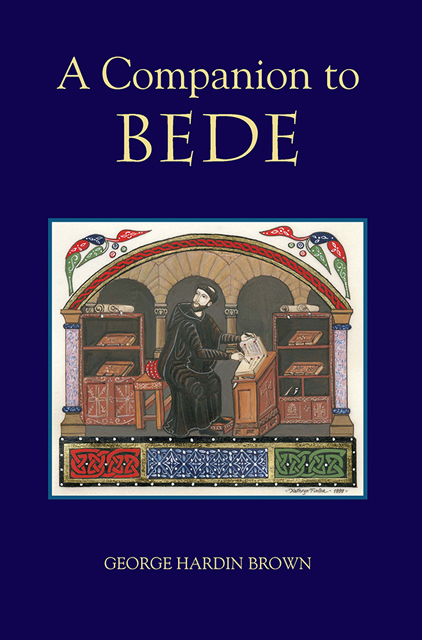Book contents
- Frontmatter
- Contents
- Preface and Acknowledgments
- Abbreviations
- 1 Bede’s Life and Times
- 2 Educational Works
- 3 The Biblical Commentaries
- 4 Homilies, Hagiography, Martyrology, Poems, Letters
- 5 The Histories
- 6 A Brief History of Bede’s Works through the Ages
- Works Cited
- Index of Bede’s Works
- General Index
- Anglo-Saxon Studies
2 - Educational Works
Published online by Cambridge University Press: 03 March 2023
- Frontmatter
- Contents
- Preface and Acknowledgments
- Abbreviations
- 1 Bede’s Life and Times
- 2 Educational Works
- 3 The Biblical Commentaries
- 4 Homilies, Hagiography, Martyrology, Poems, Letters
- 5 The Histories
- 6 A Brief History of Bede’s Works through the Ages
- Works Cited
- Index of Bede’s Works
- General Index
- Anglo-Saxon Studies
Summary
BEDE's educational manuals tap into the collective heritage of the late Roman, patristic, and early medieval educational tradition. The heritage involves complex issues and attitudes. Many early monastic ascetics were hostile to the educational system inherited from the Romans not only because pagan literature was deemed frequently immoral but also because the arts – such as literature and rhetoric – and the sciences lured the mind away from concentrating on the spiritual realm. Although each of the four great Fathers of the western Church, Ambrose, Augustine, Jerome, and Gregory, whose footsteps Bede strove to follow, had received an aristocratic Roman education before commencing their religious careers, each of these great men went on record as rejecting the pagan secular tradition and their training in it when they turned wholly to the Christian life.
Nevertheless, the Fathers recognized that secular studies were necessary requisites for the reading of Scripture. Jerome asserted that profane literature could be a useful assistant just as the beautiful captive woman in Deuteronomy (21: 11–13) could become a good Jewish wife. Similarly, Augustine tolerated profane studies if appropriated to the study of the sacred text: “History helps us a great deal in the understanding of sacred books, even if we learn it outside of the Church as part of our childhood education.” On the analogy of the Israelites despoiling the treasures of the Egyptians by divine command (Exodus 3: 22, 11: 2, 12: 55), he argued that Christians ought to feel free to expropriate from pagan literature “the liberal disciplines more suited to the uses of truth.” Gregory the Great was credited with saying, “In knowing the liberal arts we understand divine words better.” For that reason only, the study of profane literature was allowed. The Fathers distinguished, not always carefully, between the illegitimate indulgence in the reading and enjoyment of pagan literature and the pragmatic appreciation of pagan letters for educating the Christian to read and enjoy Scripture sophisticatedly and to defend the Christian position against the subtle attacks of erudite enemies. As to the actual use of classical literature and rhetoric in their works, Jerome is on one end of the spectrum with the fullest usage and Gregory on the other with the least; but all of the Fathers drew upon their classical training and repertoire. It is also important to remember that, whether rejected or not, the values and attitudes culled from Roman education pervaded the Fathers’ thought, and as a result much that filtered through the system as Catholic doctrine about history, society, and morality was Roman and not specifically Christian.
- Type
- Chapter
- Information
- A Companion to Bede , pp. 17 - 32Publisher: Boydell & BrewerPrint publication year: 2010



